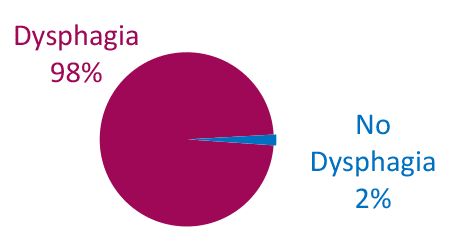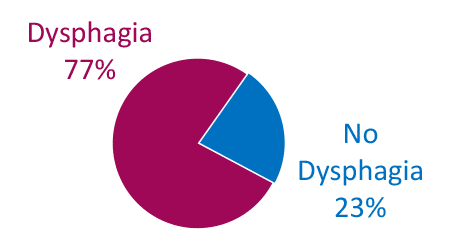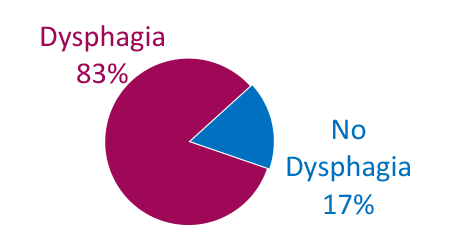Swallowing requires many nerves and muscles to work together so food and beverages can move from the mouth to the stomach. ALS often affects the nerves and muscles that help us swallow. In many people, ALS causes a medical condition called dysphagia. Dysphagia means difficulty in swallowing. It is the sensation of abnormal swallowing.
Symptoms of Dysphagia
One of the biggest fears that people with ALS have is choking. Dysphagia doesn’t happen overnight. Often, people with ALS don’t notice they have difficulty swallowing. They automatically adjust to the small day-to-day changes that occur to the nerves and muscles that control swallowing. Dysphagia is very common in ALS and affects about 85% of people.
Dysphagia is more common in patients with bulbar onset ALS. However, many people with limb onset ALS also develop dysphagia. Patients should not delay telling their doctor if they are having difficulty swallowing. Sometimes, caregivers will notice that patients are having difficulty swallowing before patients realize it.
Dysphagia is Common in ALS
Bulbar Onset

Limb Onset

Combined*

* Weighted average
Adapted from Onesti E. Frontiers in Neurology 2017;8:94.
The PILL-5 is a validated questionnaire that can help identify people who have difficulty swallowing pills. It consists of 5 questions and is easy to take and score. Results from the PILL-5 is not equivalent to a clinical swallowing evaluation or instrumental assessment – only your doctors can determine this.
Click here for a copy of the PILL-5 assessment tool. After you print out the PILL-5, complete the 5 questions before your doctor’s appointment. Take the completed PILL-5 to your appointment and discuss the results with your doctor.

